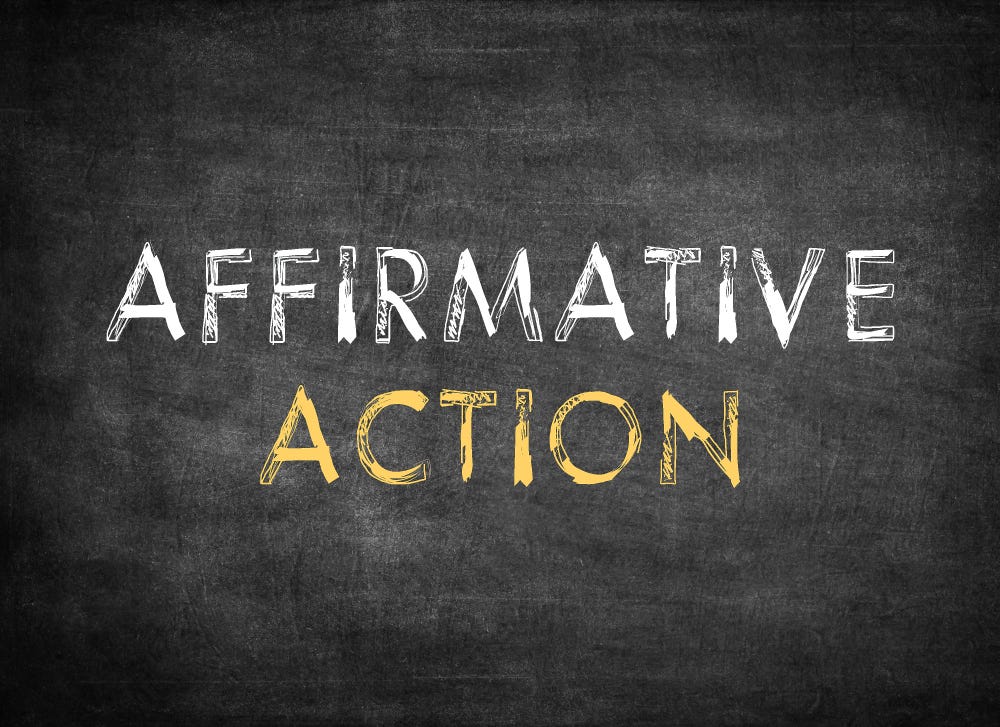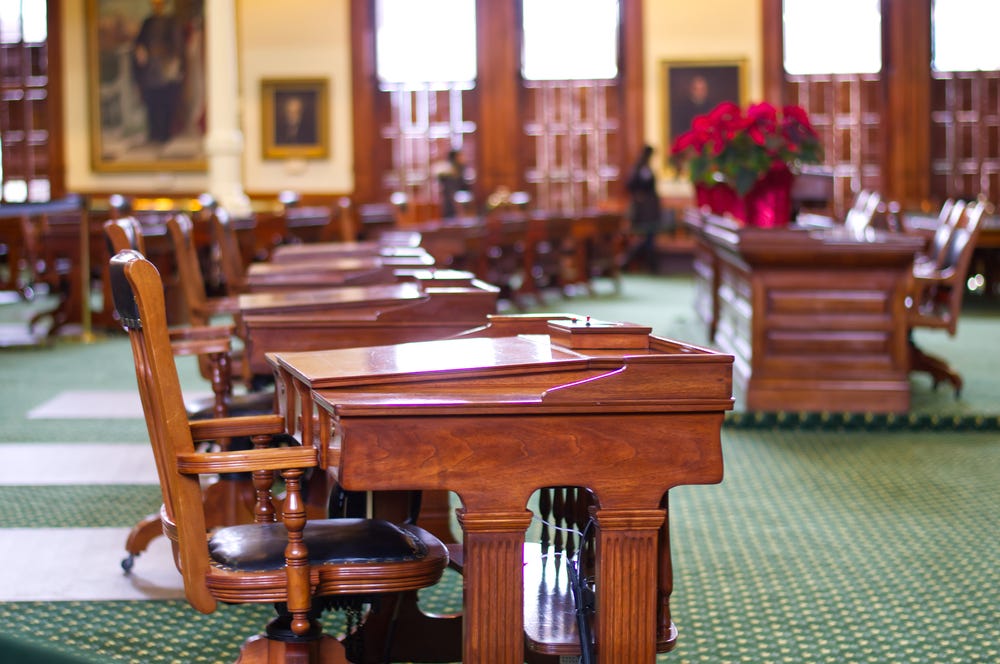E-Pluribus | February 2, 2022
Conditioning culture, a call to end all forms of affirmative action, and legislators take aim at academic freedom.
A round up of the latest and best writing and musings on the rise of illiberalism in the public discourse:
David French: Cancel Culture, Conditioning Culture, and America’s Stun-Gun Style of Discourse
At The Dispatch, David French delves into one aspect of cancel culture that he dubs “conditioning culture.” Many on social media may be either too big or too small to effectively be “canceled,” but the impacts of go-for-the-jugular discourse go deep and are wide-ranging. French decries this impulse to use coercion instead of persuasion as we seek to advance our causes and beliefs.
You don’t have to be a public figure to experience this [shock] style of discourse. You can just open your mouth, in person or on social media. Make a good-faith argument that’s disagreeable to someone else, and then comes that shock in response. Usually it’s in the form of a personal insult. Sometimes it combines insults with deception and mischaracterization.
[…]
Over time, individuals grow conditioned. They know which topics bring the pain. They know which audiences carry the stun guns and cattle prods. So you have to make a choice—take the shock, again and again and again, or stay silent.
In this sense, we often face not so much “cancel culture” but “conditioning culture.” You’re trained. This far and no farther. Even when you’re sincere. Even when you hold no animosity in your heart.
[…]
Cancel culture incidents are often sensational and extreme, and they can pop up on both the left and the right. But the vast, vast majority of Americans will never experience it. They see it. They’re worried about it. But they’re just not going to face job loss for their political or religious opinions.
Conditioning culture, however, is far more common. Conditioning culture is characterized by the use of whatever platform a person has to inflict some form of negative consequence on speakers who engage in speech they despise. Indeed, individuals who engage in almost any amount of commentary or conversation about politics tend to experience at least some level of attempted conditioning.
[…]
Conditioning culture shuns persuasion as a tool. That’s too hard. That takes too long. Because we’re human, and we know insults hurt ourselves, we presume they hurt others. So that’s where we turn.
Read the whole thing.
John McWhorter: End Affirmative Action for Rich White Students, Too
Affirmative Action is most often used in the context of advancing members of historically disadvantaged minority groups, but John McWhorter at the New York Times takes on another form of affirmative action: legacy preferences for the children of alumni at institutions of higher learning. If college admissions are to based on merit, then family connections should not tip the scales any more than connections to a particular minority group, McWhorter says.
[M]y answer to the whataboutism of using legacy preferences as a defense of or at least a rebuttal to questioning race-based preferences is: Legacy preferences should go as well. Of course. Elite schools such as Amherst College and Johns Hopkins University have ended the practice. A 2020 statement from John Pérez, then the chair of the University of California Board of Regents, read, “Per long-established U.C. Regents policy, U.C. forbids legacy admissions and does not grant preferential admission to the children of alumni or donors.” A blunt stand-alone statement on the admissions website at the Massachusetts Institute of Technology reads: “M.I.T. doesn’t consider legacy or alumni relations in our admissions process. If you’d like to read more about this policy, check out the blog Just to Be Clear: We Don’t Do Legacy.”
These schools are on the right track. There should be neither preferences for well-to-do white students nor preferences for well-off students of color — even those we might describe as merely upper middle class, such as my own children — but instead, preferences for students of poor or working-class backgrounds, irrespective of race.
Yet the question might be, “Why not stress that point?” since people contesting racial preferences often don’t.
Perhaps some suppose that someone who contests racial preferences without concurrently objecting to legacy preferences is turning a willful blind eye, eager to let white people off the hook. But this rather hastily casts the opponent of racial preferences as someone of bad faith.
And we must ever beware the idea that people we disagree with on societal issues are either ignorant or sinister. For example, some argue, intuitively, that legacy preferences are necessary to maintain alumni donations. But in a chapter of “Affirmative Action for The Rich: Legacy Preferences in College Admissions,” researchers came to the conclusion that “there is no statistically significant evidence of a causal relationship between legacy preference policies and total alumni giving among top universities.”
Read it all.
Joe Cohn: New wave of bills on race and sex stereotyping violate academic freedom
Academic freedom at the collegiate level is particularly important, and the Foundation for Individual Rights in Education continues to track efforts in legislatures across the country to dictate what teachers may and may not say in the classroom. Much of the news is discouraging, but FIRE points to some bright spots where good sense prevailed over attempts at changes that would likely end up being ruled unconstitutional.
As legislatures across the country begin or resume legislative sessions in the new year, lawmakers are introducing new bills that would seek to regulate how race and sex are addressed in K-12 classrooms and in America’s colleges and universities. Problematically, most of this year’s crop of bills that apply to the collegiate setting present unconstitutional intrusions into what can and cannot be taught.
When these bills first started appearing last year, FIRE was quick to point out that while legislators have broader (but not unlimited) authority to set K-12 curriculum, the First Amendment and the principles of academic freedom prevent the government from banning ideas from collegiate classrooms.
[…]
Thankfully, the final versions of the enacted 2021 higher education race and sex stereotyping bills did not include provisions with curricular bans. (Because FIRE’s mission is to protect individual rights in higher education, our legislative focus has been exclusively on those bills that would impact higher education, and we have not taken a position on any language that regulates K-12). These laws, passed in Idaho, Iowa, Oklahoma, and New Hampshire, were each considerably more measured than most of the bills filed so far in 2022. For example, last year the Idaho legislature, rather than ban any curriculum, instead prohibited colleges and universities from compelling students to affirm specific political viewpoints.
Read it all here.
Around Twitter
Via the Foundation for Individual Rights in Education, results of a recent free speech survey:
ABC’s suspension of Whoopi Goldberg from The View for two weeks isn’t going over well among free speech advocates (or with Whoopi herself):
And finally, via Glenn Greenwald, two young leftists vigorously defending free speech:












